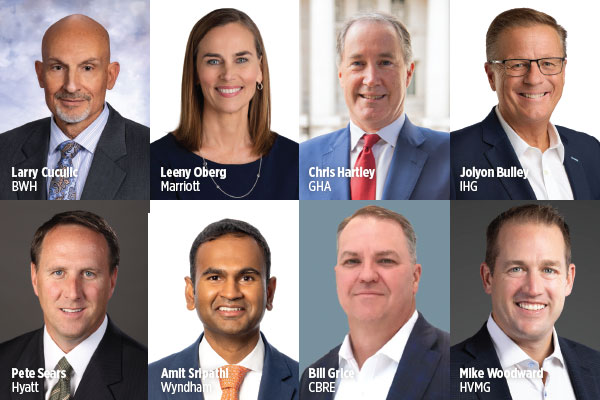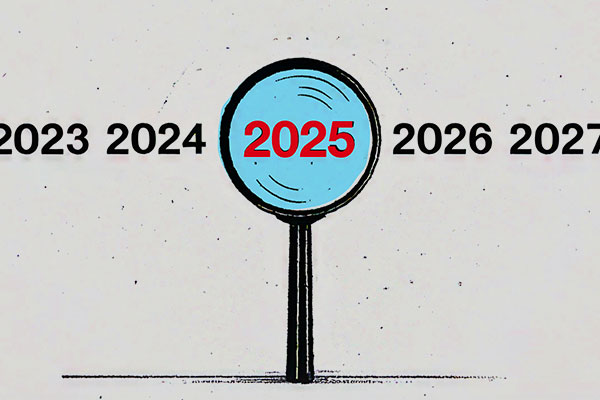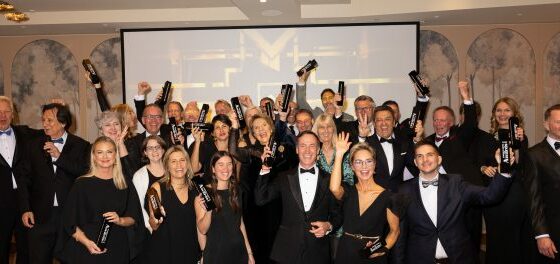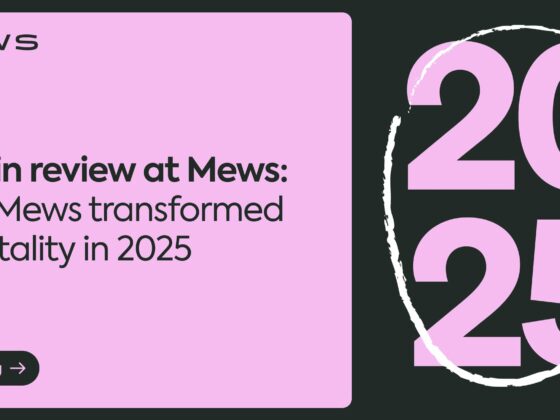Brian Chesky, the co-founder and CEO of Airbnb, a company that by turns is admired and loathed by the traditional hotel industry, is on record saying that artificial intelligence will likely have more of a worldly impact than the Industrial Revolution did. It’s a bold statement. He might be right.
Leaders within the hotel industry agree that the era of AI will have a profound and irreversible impact—one that could start paying dividends as early as, well, now. AI will be a formidable force, changing the way hotels interact with guests and how guests approach the travel-booking process. It’s not the only thing on hoteliers’ radars in 2025.
Last year was a reality check. The good news is that the check engine light was not on; rather; things moved more smoothly as the distribution mix became more predictable and consistent, including a welcomed burst in group travel, and, if not embraced, but accepted, more solidity in interest rates and its impact on development and transactions.
It’s a lot to consider heading into the new year and while much of it is baked in, hospitality leaders are both united and varied in how they believe 2025 will pan out. HOTELS Magazine elicited responses from a cross-section of the hotel industry to gauge the trends and topics that will be most prevalent as 2025 barrels forward.
HOTELS: As we pivot to 2025, what are the trends/ storylines you expect to have the largest impact on the hospitality industry?
Larry Cuculic, president & CEO, BWH Hotels: Technology continues to serve as a foundation for trends. For guests, technology will continue to redefine the guest experience, with GenAI playing a central role in delivering hyper-personalized service, from customized loyalty programs to seamless check-ins. This shift highlights the importance of small, thoughtful details that build loyalty, attract new guests and differentiate brands in a competitive market. For hotels, technology will enable them to operate more effectively and efficiently. Hotels will use GenAI to effectively interact with guests throughout the customer experience—from shopping, to booking, to pre-arrival, throughout the stay and to post-departure.
Leeny Oberg, CFO and EVP, global development, Marriott International: Our business will continue to reflect the macroeconomic environment and robust economic growth in our markets around the world, which is the best predictor for strength in business, group and leisure. Given consumers’ continued focus on experiences over goods, trends that favor unique offerings that augment the traditional stay will endure in 2025.
Jolyon Bulley, CEO, Americas, IHG Hotels & Resorts: Travel remains among the most resilient of consumer discretionary spending areas, with continued demand from businesses and groups heading into the new year. We’re encouraged by the industry’s positive, structural and long-term demand drivers, including an expanding global middle class and the fundamental desire of people to travel. We expect another strong year and continued growth [especially] for luxury and lifestyle travel and hospitality, which is expected to grow to $369 billion in value by 2032.
Chris Hartley, CEO, Global Hotel Alliance: Travel management companies and travelers will continue to seek environmentally friendly options, pushing hospitality brands to adopt more sustainable practices. This includes reducing carbon footprints through renewable energy, waste management and water conservation efforts, carbon offsetting and sustainable aviation fuel.
Pete Sears, group president, Americas, Hyatt Hotels Corp.: We expect to continue seeing strong meetings and events and business travel demand, with the desire for in-person collaboration, driving growth across both group and business transient segments. In Q3, these two segments led Hyatt to system-wide RevPAR growth, with business transient customers being Hyatt’s single biggest YOY growth driver. For the leisure segment, travelers continue to desire more personalized and immersive experiences, and we are seeing an increased demand for luxury and lifestyle stays and seamless ways for travelers to prioritize their well-being while on the road.
Chris Trick, chief marketing & performance officer, Sonesta Hotels: First, the integration of advanced technology, such as AI-driven personalization, will enhance guest experiences and operating efficiencies. It’s really about the ability to connect with our guests in more personalized ways. Second, immigration reform with the new administration and the impact it will have on labor in hospitality. Finally, sustainability and eco-friendly practices will take center stage as travelers become more environmentally conscious.
Amit Sripathi, CDO, Wyndham Hotels & Resorts: Interest rates will continue to be a focus and we’re optimistic when it comes to hotel development. Eighty percent of investors plan to maintain or increase their capital investment in hotels over the next 12 months. With below-average supply over the last few years coupled with lower rates expected to come into play, that opens the door for more deals to get done and increased new construction activity. The runway for infrastructure will also play an important role in 2025. We’re seeing positive momentum in the infrastructure-related business, particularly in oil and gas markets.
Maud Bailly, CEO of Sofitel Legend, Sofitel, MGallery & Emblems, Accor: Travel habits and the expectations of luxury guests have changed significantly leading to several major trends. First, there is a growing demand for multigenerational travel, with families seeking properties that cater to extended family groups. Second, our guests are increasingly seeking authentic, locally anchored experiences that emphasize cultural exploration and demonstrate a strong commitment to social and environmental responsibility. Third, wellness has taken center stage since COVID, with a growing demand for retreats that embrace a holistic approach to well-being. Last, AI is transforming hospitality by enabling more personalized guest experiences. In the coming year, we will leverage AI to enhance efficiency.
Bill Grice, president, head of hotels, Americas, CBRE Hotels: Debt capital markets and prevailing interest rates will continue to significantly influence hospitality industry transactions in the coming year. A higher interest rate environment has made strategic acquisitions and recapitalizations more challenging for owners and investors as they strive to meet their return targets. Despite these obstacles, there’s ample liquidity to support even the largest transactions. Leverage is increasing and credit spreads are narrowing, both positive signs that indicate a notable rise in transaction volume in 2025.
Mike Woodward, EVP & chief growth officer, HVMG: Will the transactions market pop? The industry has been waiting for the dam to break for a few years now. For our portfolios, will the Safety Act that was passed in New York City spread to other major union markets? This obviously could have a huge impact on the way we do business as an industry.

HOTELS: What are you most focused on in your business?
Dan Peek, president, JLL Americas Hotels & Hospitality: The interest rate cuts and improvements in the lending market will be a key signal that better days are ahead for capital markets-focused firms. A more diverse and robust pool of international bidders, particularly from the Middle East, would significantly impact the transaction market in a positive way. So far, international capital has been muted, mostly originating from Canada, Latin America, and to some degree, Western Europe.
Gregg Forde, president & COO, Island Hospitality: We focused heavily on employee retention, especially coming off the labor market volatility the last few years. The result was a nearly 25% reduction in turnover that positively impacted the bottom line on total labor costs and created a better work environment for associates. The other key focus was our commercial strategy. We increased corporate personnel dedicated to sales and revenue management, added technology to enhance our business insight and focused on disciplined execution of our strategies.
Ben Perelmuter, president & COO, TPG Hotels & Resorts: Operations all the way. We are most focused on cost control and strategizing creative ways to model the middle of the P&L statement to offset higher fixed costs. We realize that this is key to keeping the hospitality business a continued attractive investment and are leveraging both technology and leadership to execute. We are also mindful and aggressive in maintaining high service standards and brand performance. In terms of growing the business, we are focused on high-quality ownership groups and partners. Serving a smaller stable of clients enables us to provide higher levels of service and execution and ultimately drive value creation.
Chad Sorensen, managing director & CEO, CHMWarnick: We are focused on driving performance and unlocking value that isn’t easily identifiable. We have been all-in for the past 10 years on utilizing business intelligence to drive asset-level performance. As we look toward 2025, and the generally muted RevPAR growth and greater cost burdens than the industry has historically seen, identifying unconventional ways to drive performance is more important than ever.

HOTELS: What will be the biggest difference between 2025 and 2024?
Jess Petitt, SVP of strategy, insights & analytics, Hilton: Change happens slowly, but it is happening in foundational ways in our industry. For instance, the desire for lifestyle and luxury hotel experiences will continue and spur further development from the ownership community. Additionally, business and group travel will continue on their path to normal seasonality, with some key shifts. We expect an increase in the number of smaller meetings, off-site team gatherings and incentive travel. GenAI will continue to mature, with the first guest-facing applications likely changing how guests search for and book their travel over the next several years. This technology will bring a new level of personalization and ease to the guest experience.
Bailly, Accor: We are living in a more complex and volatile global environment, marked by significant geopolitical tensions. Unfortunately, it appears that 2025 may bring even greater volatility, with additional pressures exacerbating the situation. Since the end of the global health crisis and the lifting of travel restrictions, the world has reopened, with travel becoming more than ever a symbol of freedom and joy. This has led to a surge in visitors from regions such as the Americas, the Middle East, India and Brazil. However, looking ahead to 2025, a key question remains: the full return of Asian travelers, particularly Chinese guests, to international travel. Their numbers have yet to rebound to pre-COVID levels, leaving a gap in the global tourism market.
Sorensen, CHMWarnick: The back half of 2024 was the first real operating re-stabilization that the industry has seen since pre-pandemic and that should carry into 2025. Operating costs are higher than the industry has ever seen, but they are now generally predictable. That is very different than what the industry was facing a year ago. This year should offer more opportunity to be proactive and strategic for most, which should drive better guest satisfaction, financial performance and overall better outcomes.
Hartley, GHA: There may be a softening of prices as supply catches up with demand growth, and airline seat capacity on international routes continues to expand. Premium travel will remain a focus for airlines and hotels. China will start traveling again, while in the Middle East, some of Saudi’s first big hotel projects will come to fruition and travel into the Kingdom will start in earnest. And as we all hope for an end to regional conflicts, could this be the catalyst for an even better year in 2025 than in 2024?
Trick, Sonesta: The past several years have taught us how resilient this industry is. We’re optimistic and know the industry will be ready as we begin to meet the needs of the next generation of travel. From AI to immigration, sustainability to wellness, the travel landscape and guest expectations will continue to evolve and the industry will adapt to meet their needs.









